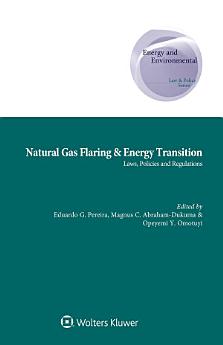Natural Gas Flaring & Energy Transition: Laws, Policies and Regulations
About this ebook
In the multifaceted approach provided by the book’s contributors—experts from a broad cross-section of gas-producing countries—the book engages with such issues and topics as the following:
the technical aspects behind natural gas flaring;
alternative solutions to mitigating natural gas flaring via carbon capture, utilization and storage;
energy security imperatives;
legal frameworks governing natural gas flaring, with case studies from key twenty leading oil and gas jurisdictions;
best practices and potential solutions that can be adapted to different contexts;
environmental, social, and governance (ESG) considerations;
potential disputes arising from changing regulations and market conditions; and
recommendations for design, application, and implementation of natural gas development and marketing.
Bringing together legal, policy, and regulatory perspectives from natural gas hubs, this work fills a significant gap in the existing literature with a rigorous exposition and comparative analysis of the business, legal, economic, and sustainability aspects of natural gas flaring and its role in the energy transition across global energy markets. It will prove to be of immeasurable value to policymakers, industry stakeholders, regulators, concerned nongovernmental organizations, and legal practitioners in sustainable development and international relations. It is sure to contribute to informed decision making and ultimately to more sustainable and equitable energy systems worldwide.







